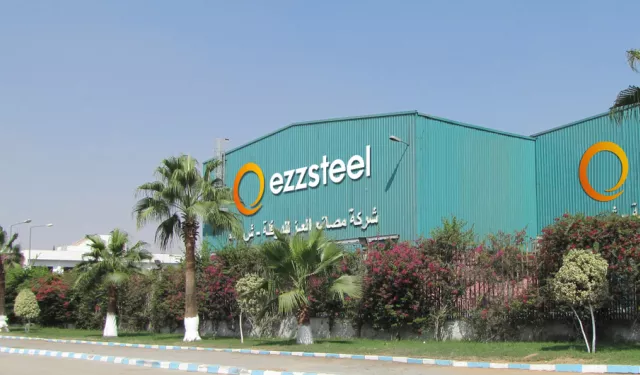Egypt’s leading steel producers slashed rebar prices this month after a sharp drop in local demand, in a sign of deepening distress across the country’s construction and real estate sectors, Mohamed Hanafy, director of the Chamber of Metallurgical Industries at the Federation of Egyptian Industries told Al Manassa.
On Monday Ezz Steel, the nation’s largest producer, cut factory gate prices by more than 4,000 Egyptian pounds ($130) per ton to 34,000 pounds, retroactive to early November. Suez Steel implemented a similar reduction.
“Local rebar sales have fallen around 20% compared to the same period last year,” Hanafy told Al Manassa. “The market is oversupplied, and some plants are carrying excess inventory.”
From January through November 2024, domestic consumption dropped to 5.5 million tons, down from nearly 7 million tons a year earlier, Hanafy said. Exports also fell more than 10% to 1.8 million tons during the same period in 2025, he added.
Oversupply pressures prices
Industry players attribute the falling prices to weak demand from both individuals and state-led projects. About 40% of domestic steel consumption typically comes from individual buyers, with another 40% linked to government and private-sector residential developments, and the remaining 20% going to infrastructure, utilities, and road projects.
But that breakdown is shifting. Hanafy said government demand has declined this year as authorities hold surplus inventories from earlier construction waves. Meanwhile, a slowdown in building activity, especially in the Nile Delta and Upper Egypt, has hurt individual demand, following a pause or slowdown in new building permits.
“The real estate sector is clearly stagnant,” he said. “And the private sector’s contribution to steel demand remains relatively limited.”
Sales sluggish despite marketing push
A separate source at the New Urban Communities Authority, who requested anonymity due to the sensitivity of the matter, to Al Manassa that the agency’s plan to market unsold housing stock since July 2024 has seen disappointing results.
Last year, the authority launched a coordinated campaign—targeting all housing segments, from low-income to luxury—through its affiliated developers, including City Edge, Founders, Hyde Park, Saudi Egyptian Developers, and Tureek.
But “sales to individuals remain very limited,” the source said. The main challenge, they explained, is affordability.
Buyers are deterred by steep prices and the lack of interest-free installment options. Current payment plans stretch over three, five, or seven years and include interest linked to the central bank rate, along with added administrative fees payable to the Ministry of Finance.
“These pricing models just don’t work for most consumers,” the source said.
In response to a broader sales slowdown, an official source in the NUCA told Al Manassa earlier this week that the authority now plans to reduce interest rates on land installment payments for private developers in a bid to ease pressure on the sector and stimulate new activity.
